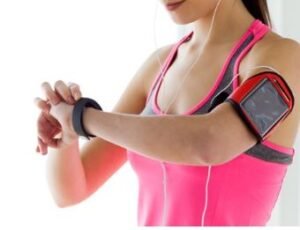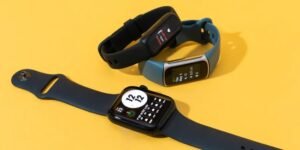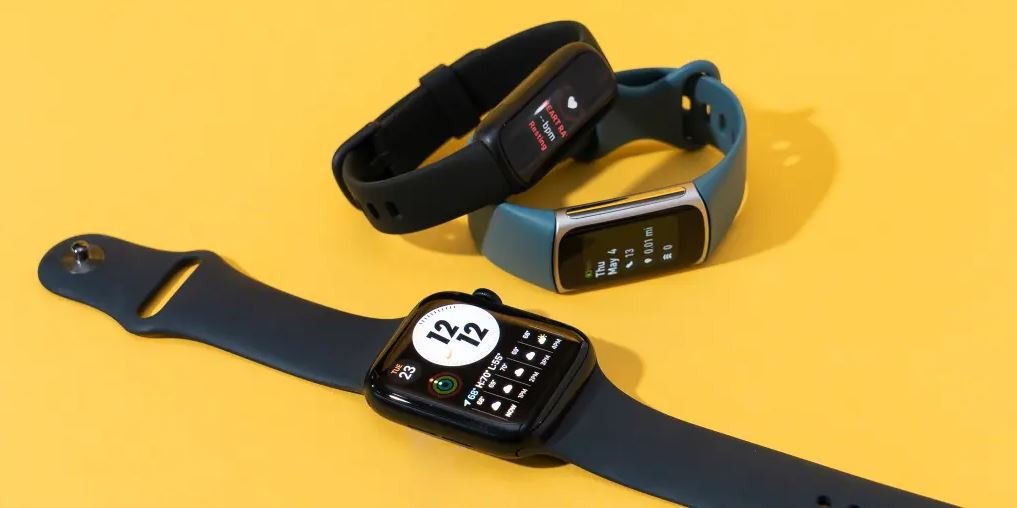Fitness trackers have become a staple for health enthusiasts, athletes, and even those just looking to improve their lifestyle. These gadgets promise to help you track your physical activity, monitor your heart rate, measure calories burned, and even analyze your sleep patterns. But as with any trend, the question arises: Should you get a fitness tracker? Boost your fitness or risk over-reliance on technology? In this article, we will delve into the pros and cons of fitness trackers and explore whether they truly help you achieve your fitness goals or if they lead to unnecessary dependence on gadgets.

What is a Fitness Tracker?
A fitness tracker is a wearable device designed to monitor various physical activities and health metrics. These devices typically include features like step counting, calorie tracking, heart rate monitoring, sleep analysis, and sometimes even GPS tracking for outdoor activities. Many fitness trackers also sync with apps, allowing users to analyze their data over time and set personalized goals.
But should you get a fitness tracker? The answer depends on your fitness goals, habits, and how you intend to use the device. Let’s look at both the benefits and potential downsides of using a fitness tracker to help you decide.
The Positive Side: Should You Get a Fitness Tracker? Boost Your Fitness
1. Increased Motivation
One of the most significant benefits of a fitness tracker is its ability to motivate you to stay active. Seeing real-time data on your steps, calories burned, and heart rate can encourage you to move more throughout the day. Many fitness trackers also come with goal-setting features that push you to complete daily targets, such as hitting a certain number of steps or active minutes. This sense of achievement can be incredibly motivating, helping you stick to your fitness routine.
For instance, the tracker might alert you when you’ve been inactive for too long, encouraging you to get up and move. By setting and tracking goals, a fitness tracker can give you that extra nudge to reach new levels of activity, leading to improved fitness and health.
2. Better Understanding of Your Health
Fitness trackers provide valuable insights into your daily activity, sleep quality, and heart rate, offering a comprehensive look at your overall health. By regularly tracking these metrics, you can gain a deeper understanding of how your body responds to different workouts, sleep patterns, and stress levels.
For example, if you find that your heart rate spikes during exercise or that you’re not getting enough deep sleep, this data can help you adjust your routine. With consistent tracking, fitness trackers can help identify trends and areas of improvement, allowing you to optimize your workouts and lifestyle for better results.
3. Improved Accountability
The convenience of having a fitness tracker on your wrist means you’re more likely to stay accountable to your fitness goals. Having a device that actively tracks your progress can keep you on track and remind you of your objectives. Whether it’s a daily step count, calories burned, or minutes spent exercising, the data collected by your fitness tracker keeps you aware of your progress in real-time.
Additionally, fitness trackers often allow you to connect with friends or join online fitness communities, fostering a sense of accountability. Sharing your achievements or challenges with others can provide extra encouragement, making it easier to stay consistent in your fitness journey.

The Negative Side: Should You Get a Fitness Tracker? Risk Over-Reliance on Technology
1. Obsessing Over Numbers
While tracking your fitness can be motivating, there’s a risk of becoming obsessed with the numbers. Some users become fixated on their step count, calories burned, or heart rate, which can lead to unhealthy behaviors. Constantly checking the data can create stress, especially if you’re not hitting your goals, leading to feelings of disappointment or anxiety.
This obsession with data may result in over-exercising and pushing yourself too hard in the pursuit of higher numbers or perfection. This mindset can sometimes detract from the enjoyment of physical activity and harm your mental health. When should you get a fitness tracker, it’s essential to remember that fitness is not just about numbers—it’s about overall well-being and balance.
2. Over-Reliance on Technology
Another downside of fitness trackers is the potential for over-reliance on technology. While these devices can provide helpful data, they’re not always 100% accurate. The measurements of steps, calories, and even heart rate can be influenced by various factors, such as how tightly the tracker fits or how it interprets movement.
Over-relying on technology to guide your fitness decisions can also undermine your ability to listen to your body. You may feel compelled to push yourself based on the data rather than paying attention to how you truly feel. For instance, if your fitness tracker tells you that you haven’t met your daily step goal, you might feel pressured to go for a walk even if your body is telling you it needs rest.
3. Potential for Inaccurate Data
Though fitness trackers provide valuable insights, their data isn’t always perfect. For example, some trackers may overestimate or underestimate calories burned during exercise or fail to accurately track the quality of sleep. Depending on your fitness goals, you might end up making decisions based on flawed data, which could impact the effectiveness of your training and overall progress.
Relying too much on inaccurate data might lead to confusion or misinformed decisions. It’s crucial to treat fitness trackers as a tool for guidance, not as the sole source of truth when it comes to your health and fitness.
How to Use a Fitness Tracker Effectively
If you decide that a fitness tracker could benefit you, here are some tips for using it effectively without falling into the trap of over-reliance:
- Use It as a Tool, Not a Crutch: Don’t let the numbers define your success. Use the tracker to gain insights into your routine and progress, but listen to your body and adjust your workouts accordingly.
- Set Realistic Goals: While it’s tempting to set high targets, make sure your goals are attainable and aligned with your overall fitness objectives. Focus on consistency and long-term health rather than achieving daily perfection.
- Combine It with a Balanced Approach: A fitness tracker should complement a healthy lifestyle, not replace it. Don’t neglect nutrition, rest, and mental well-being. Use the data to fine-tune your approach, but always remember that fitness is about balance.
- Remember, Data Isn’t Everything: While the data can be helpful, it doesn’t account for every aspect of your fitness. Pay attention to how you feel, your energy levels, and your recovery—these are just as important as the numbers on your tracker.

Looking for the top protein powders for athletes? Discover how the right protein can significantly boost muscle growth and recovery. But be cautious—overconsumption could lead to unwanted side effects. Ready to find the best options for your fitness goals? Check out the full article here!
Conclusion: Should You Get a Fitness Tracker? Boost Your Fitness or Risk Over-Reliance on Technology?
The answer to the question, of whether should you get a fitness tracker, largely depends on how you approach it. Fitness trackers can be an excellent tool for boosting your fitness, providing motivation, tracking progress, and gaining insights into your health. However, they come with the potential risk of over-reliance and obsession with numbers. By using a fitness tracker mindfully—viewing it as a tool rather than a strict guide—you can maximize its benefits without letting technology take over your fitness journey.
If you’re looking for extra motivation and valuable insights into your training, a fitness tracker could be a great addition to your routine. But remember, balance is key. Stay focused on your overall well-being, and don’t let a device dictate your success.




